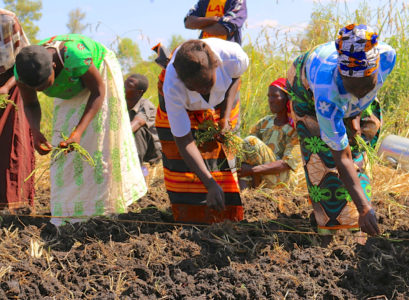Orange-fleshed sweetpotato (OFSP) is an impressive crop, able to grow on marginal lands and produce nutritious roots within three months from planting. However, farmers plant vine cuttings rather than seeds, and getting enough vines to plant at the beginning of the rainy season can be a challenge for smallholders in sub-Saharan Africa (SSA). This is especially true in areas with long dry seasons, and it is one of the challenges of growing sweetpotato that will likely grow as climate change advances.

Researchers at the International Potato Center (CIP) are consequently promoting a practice that allows farmers in sub-Saharan Africa (SSA) to produce their own vines in time for the planting season. It consists of storing sweetpotato roots in dry sand following the harvest, planting them in seedbeds 6-8 weeks before the rainy season, and watering them to produce enough vines to plant when the rains begin. Known as Triple S – for storage in sand and sprouting – this technology can result in earlier harvests, providing food and income at a time that is commonly known as “the hunger season.”
Continue reading this story on the International Potato Center website.